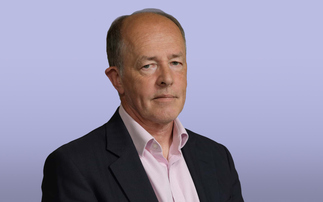The acting head of the Financial Conduct Authority (FCA) has defended the regulator against accusations of bias, saying it makes decisions based on "a fair and objective assessment of the facts" and not to please or curry favour with politicians.
In a speech designed to talk tough to critics of the regulator, who have cried foul at its decision to drop a key investigation into banks' culture and the ousting of hardliner CEO Martin Wheatley in favour of Bank of England insider Andrew Bailey, McDermott (pictured) was defiant
"We are not here to be popular," she said.
"It is important... that we listen and take into account external comment but we do not allow that to become the key driver in our decision making.
"We will not deviate from the work we are doing to raise standards across the sector."
Speaking at a Bloomberg event in London on 4 February, McDermott, who had been tipped to takeover permanently at the FCA before ruling herself out and the job went to Bailey, talked of pushing ahead with "real and enduring reform across the City".
"For financiers, this is a year that will re-orientate professional lives. Personal accountability will become an everyday, working reality," she said, referring to the implementation of the senior managers regime, which will ensure that bosses can be held accountable for any misconduct that falls within their areas of responsibilities.
The rules will be rolled out in the banking sector first, before becoming mandatory across financial services, including advisers.
Further strides forward in pensions, savings and mortgages would also make 2016 "a defining year" for consumers, she said.
McDermott repeated her stance that the FCA needs to leave behind the "regulate, deregulate, repeat cycle" that she said has served the UK "so poorly" in the past.
"There are many facets to delivering that but at the heart is the need for an independent, confident regulator who makes decisions based not on what will please a particular group or be politically expedient in the short term but on the basis of a fair and objective assessment of the facts and what will deliver the right long term solutions," she said.












